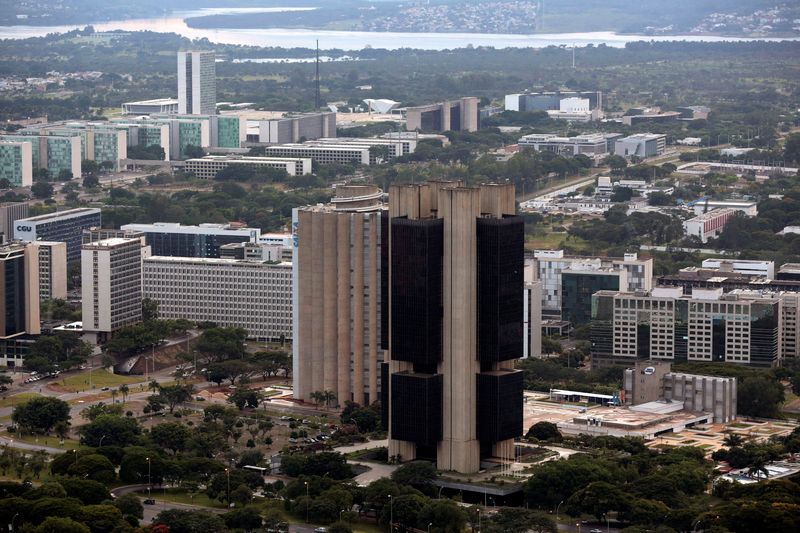BRASILIA (Reuters) - Brazil's central bank lacks a clear view of the steps it may take at its June meeting, making it more dependent on what the data shows, governor Roberto Campos Neto said on Thursday, as uncertainty weighs on the scale of future rate cuts.
Policymakers emphasized this week that uncertainties around the pace at which inflation will fall, both at home and abroad, had led them to revise their forward guidance, now anticipating another 50-basis-point cut at one upcoming meeting, in May, having previously flagged reductions on more than one occasion.
"When we don't have such a clear visibility, it is understood that we become somewhat dependent on the scenario from here until then," Neto told a press conference on Thursday.
The bank also revealed that "some members" of its rate-setting committee argued that if prospective uncertainty remains high in the future, a slower pace of monetary easing may prove appropriate.
Economic policy director Diogo Guillen noted at the press conference that while some members drew attention to that point, that "didn't mean other members disagreed with everything that was said."
Since the beginning of the monetary easing cycle in August, policymakers have cut the benchmark interest rate by a total 300 basis points to 10.75%.
The central bank acknowledged in its quarterly inflation report released on Thursday that consumer prices rose by 0.54 of a percentage point more than it expected in the three months to February, mainly due to increases in administered prices and home food prices.
It estimated smaller variations in inflation ahead, noting that, excluding seasonal effects, the projection is consistent with a slower pace of disinflation than that observed between 2022 and 2023.
The bank also revised up its projection for economic growth this year to 1.9%, from the 1.7% expected in December.
Policymakers highlighted a labor market showing dynamism and stronger wage growth, along with a credit market signaling recovery, evidenced by increased loans and declining interest rates and delinquency rates.
However, the projection remains less optimistic than the government's estimate of 2.2% GDP growth, which Finance Minister Fernando Haddad said on Wednesday could be revised to above 2.5%.
Private economists surveyed weekly by the central bank expect output to grow by 1.85% this year.
In the report, the central bank raised its forecast for bank lending expansion in 2024 to 9.4% from a previous 8.8%.

On the other hand, it lowered the estimated annual trade surplus to $59 billion from $73 billion "due to the downward revision in the export value projection, reflecting lower prices, particularly in soybeans, given the outlook for robust global supply."
As a result, the central bank now expects a larger current account deficit of $48 billion this year, up from $35 billion.